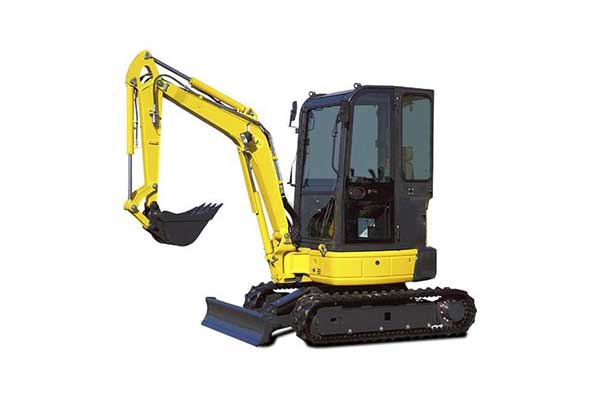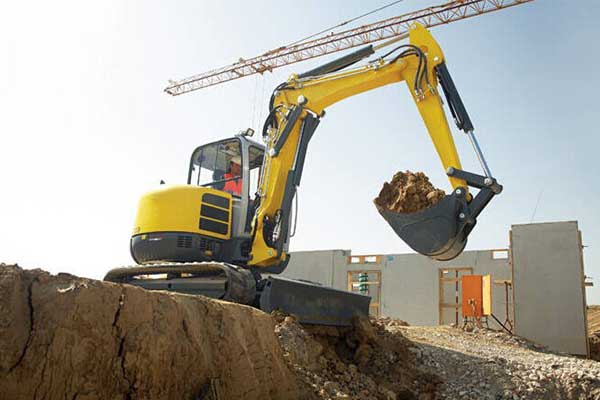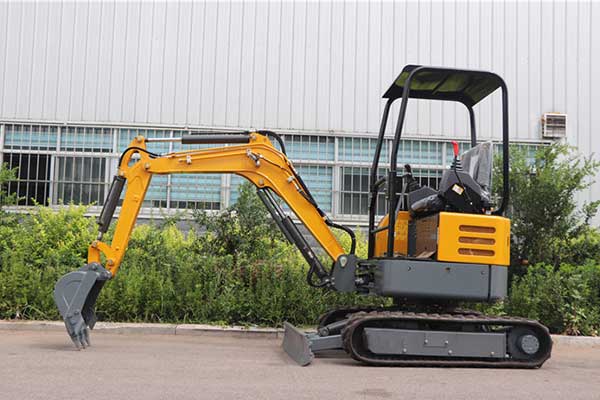What is a Compact Excavator? A Comprehensive Guide
Compact excavators, often known as mini excavators, have become essential machinery in the construction, landscaping, and agriculture industries. These versatile machines offer powerful performance in a small package, making them ideal for a wide range of tasks.

What is a Compact Excavator?
A compact excavator is a smaller version of a standard excavator, typically weighing between 0.7 to 8.5 tons. Despite their smaller size, compact excavators pack a powerful punch, offering the same essential functions as their larger counterparts, including digging, lifting, and grading.
Key Components
- House: The rotating part of the excavator that contains the operator’s cab, engine, and hydraulic components.
- Boom, Stick, and Bucket: The arm of the excavator consists of the boom (closest to the machine), the stick (middle segment), and the bucket (end tool).
- Undercarriage: Equipped with tracks or wheels, it provides mobility and stability.
- Hydraulic System: Powers the movement of the boom, stick, and bucket, as well as the rotation of the house.
Key Features of Compact Excavators
1. Size and Maneuverability
Compact excavators are known for their small footprint, which allows them to operate in tight spaces. This makes them ideal for urban construction sites, residential landscaping projects, and any job that requires precision in restricted areas.
2. Versatility
One of the most significant advantages of compact excavators is their versatility. They can be fitted with various attachments such as augers, breakers, grapples, and trenchers, making them suitable for multiple tasks, from digging and grading to demolition and material handling.
3. Ease of Transport
Due to their compact size and lighter weight, these machines are easier to transport from one job site to another. This is particularly beneficial for contractors who need to move equipment frequently.
4. Fuel Efficiency
With advancements in engine technology, compact excavators are becoming more fuel-efficient, reducing operational costs and environmental impact.

Applications of Compact Excavators
Compact excavators are used in a variety of applications due to their adaptability and efficiency. Here are some of the most common uses:
- Trenching and Digging: Ideal for digging trenches for utilities, foundations, and drainage systems, compact excavators can efficiently handle these tasks without disturbing a large area.
- Landscaping: In landscaping projects, compact excavators are invaluable for tasks like digging holes for trees, creating ponds, and grading the land. Their precision and light footprint are essential for maintaining the integrity of the landscape.
- Demolition: Equipped with hydraulic breakers or grapples, compact excavators can perform small-scale demolition work. They are particularly useful for demolishing small structures, removing driveways, or breaking up concrete.
- Utility Installation and Repair: When installing or repairing underground utilities, compact excavators are the go-to machines. Their ability to work in confined spaces and around existing infrastructure makes them perfect for this type of work.
- Construction Projects: On construction sites, compact excavators are used for a variety of tasks, including site preparation, backfilling, and grading. Their versatility allows them to adapt to the changing needs of the project.

Benefits of Using Compact Excavators
Choosing a compact excavator for your project comes with numerous benefits:
- Cost-Effectiveness: Compact excavators are more affordable to purchase and operate than larger excavators. Their lower fuel consumption and maintenance costs contribute to overall savings.
- Enhanced Productivity: The versatility and efficiency of compact excavators enable operators to complete tasks more quickly and accurately. This improved productivity translates to time and cost savings for projects of all sizes.
- Accessibility: These machines can access areas that are off-limits to larger equipment. This accessibility is crucial for completing projects in urban environments and other space-restricted sites.
- Reduced Environmental Impact: Due to their smaller size, compact excavators cause less disturbance to the environment. They can operate in sensitive areas without causing significant damage to the landscape or surrounding structures.
Conclusion
Compact excavators are versatile, efficient, and essential tools in the construction and landscaping industries. Whether it’s digging, trenching, demolition, or landscaping, compact excavators offer a cost-effective and efficient solution for a variety of job site challenges.
RoadSky and Compact Excavator
RoadSky is a professional compact excavator manufacturer and supplier with numerous product models to meet customers’ different project needs. If you would like more information, you can contact us directly.

